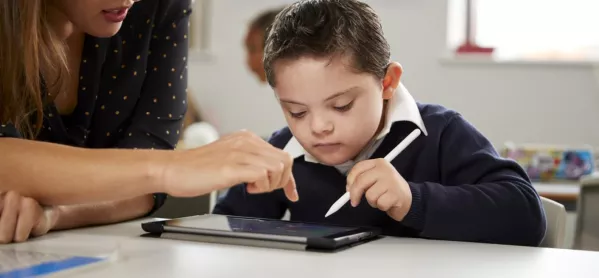What schools can gain from international partnerships

Over the past year, international partnerships have helped to bring classrooms around the world together virtually during a pandemic. This has been a great way to motivate and engage students - and to share and compare experiences.
International partnerships provide students with the opportunity to gain a deeper understanding of different cultures, traditions, lifestyles and global issues. They can help pupils to better understand the world they live in, and to break down any preconceptions.
The impact of international school partnerships
Dronfield Henry Fanshawe School in Derbyshire has worked with schools in various countries including Germany, French Guiana, Spain, Russia, Australia and Nepal for more than 20 years.
The school’s international coordinator, Howard Horsfall, says: “The benefits of international partnerships can be gained not just from events that take pupils out of their comfort zone or school, but also from events that are held in school.”
Over the years, the school has been involved in a number of international projects, including student exchange programmes and the annual Model United Nations Conference - where around 600 students from different countries, cultures and backgrounds gather to discuss global issues during a five-day conference.
One project involves schools around the world participating in an exchange including a week of themed activities. In 2019, this included a visit to French Guiana where pupils visited the former penal colony Devil’s Island and a local market, took part in a beach trail and litter picking, and made rock carvings illustrating indigenous folk tales, among other things.
In case you missed it: How Covid-19 brought global schools closer together
Related: Five ways to create a great global school partnerships
Further reading: Online partnerships unite classrooms around the world
Due to the pandemic, this year’s event is taking place virtually. Schools across four countries are joining online to play an educational board game called “Back to Nature on Big Moor”, designed by students at Dronfield Henry Fanshawe School.
Students will help animal species, such as red deer, kestrels, European badgers, European hedgehogs and the common frog, survive on an area in the Peak District National Park, close to where the school is located. The game provides an opportunity for pupils in different countries to learn about UK ecosystems - and discuss and compare decisions on how they went about trying to establish a stable population for their chosen animal.
How international projects improve social skills
And teachers who participate in international projects come from a wide range of subject specialisms - from chemistry to art, psychology to maths. Staff often link their activities to their subject area, helping to broaden students’ experiences, expand their knowledge and improve their social skills. For example, an exchange trip to Barcelona in 2019 involved a science teacher designing a project around making natural beeswax food wraps, and natural glue from potatoes.
“Students gain friendships and lifelong contacts with people outside the UK that they would not otherwise enjoy,” says Horsfall. “These projects help to improve pupils’ world view, self-confidence, ambition and aspiration, and provide a more tolerant outlook towards other people. These are life-changing opportunities and huge amounts of fun.”
Horsfall explains how a former student, Michael, who took part in a project in French Guiana in 2012, was able to draw on his international experiences when applying for PhD funding and jobs overseas. It shows how these experiences can have a far-reaching impact on pupils’ futures, adds Horsfall.
Partnerships can also create a deeper connection and understanding between countries. In 1997, Dronfield Henry Fanshawe School partnered with Goldberg-Gymnasium school in Germany.
Ruth Hoeller, exchange coordinator at Goldberg-Gymnasium says: “All of these international experiences contribute to the friendship between our nations, and help to counteract, at best, and to diminish stereotypical opinions and prejudices of the British and Germans.
“We enjoy seeing the students grow and become more and more independent. But we also enjoy the joint cooperation and friendship among the teachers of both countries.”

Working towards a shared vision
The most effective partnerships are often with schools that have a similar shared goal and vision.
St Martins School, a secondary special school in Derby, partnered with Udayachal High School in India in 2012 via the Connecting Classrooms through Global Learning programme (CCGL), funded by the British Council and UK Aid.
The schools connect through teacher and pupil exchanges and an annual project that’s tied to the global citizenship curriculum.
The 4 R’s project - refuse, reuse, reduce, recycle - involves pupils working in small teams to create something practical out of old items that would otherwise be thrown away. Students share pictures and emails, and physically exchange their work by post.
Debbie Gerring, headteacher at St Martins School, says: “This project is all about being greener and trying to make the world a better place.”
Pupils compare and share ways in which they are trying to reduce waste, and these exchanges provide pupils with real-life experiences to show that they can work together to help address global issues.
The partnership is also centred around exchanging ideas for how to best support children with special educational needs and disabilities (SEND), with aspiration being the underlying theme.
Udayachal High School has a number of children with SEND and St Martins School has worked with it to support its SEND provision. “We don’t want children to see their SEND as a barrier,” says Gerring.
As the relationship strengthened over time, the school drew on its ringfenced funds for global education, to allow the students to travel in order to enhance the partnership. Three years after visiting Udayachal High School, a pupil called James, who has been diagnosed as autistic, reflected on his experience at an “impact and innovation” event. “He said this trip was one of the most powerful experiences he has ever had - and it changed his life,” recalls Gerring.
James had never before left the UK; he learned about the process of getting a passport, experienced going on an aeroplane for the first time, and immersed himself into a different culture. This experience, says Gerring, made him a more confident person and really changed his perception of what he could do.
Developing a successful international partnership can take time, but having common goals helps to provide direction.
“Over the years the two schools have witnessed a great exchange of thoughts, ideas, information and emotions,” says Rekha Pandey, principal of Udayachal High School. “This has helped to excel and enhance the teaching and learning procedures.”
Pandey adds: “St Martins and Udayachal High School are very different and yet at the same time they are very much alike in terms of school ethos and culture. Both the schools perceive education as a medium for equity and greater social inclusion.
“The school partnership has fostered an understanding of internationalism and democratic citizenship, for the schools affirm that globally aware students are more inclined to take responsible action to change the world for the better of all.”
Top tips for a successful international school partnership
To help guide you, here are some top tips for setting up a successful international school partnership:
- Secure support from the school leadership team (SLT) - you want to have the biggest impact that you can across your school. This may include committing to running exchange programmes, link projects and providing professional development opportunities, such as the Global Teacher Award and the International School Award.
- Be clear about what you want to achieve, and what you are looking for in a partner school. Having a shared goal and vision is helpful.
- Make sure there is equity and that both partners benefit from the collaboration.
- Agree a plan together as to how you are going to proceed with your project.
- Involve other members of staff and other curriculum areas in the partnership as this delivers greater impact, shares the work involved and keeps it relevant
- Share and learn about each other’s contextual issues to allow for better planning. For example, is internet access limited? Is there a preferred method of communicating (WhatsApp, Skype, Zoom, etc)? Are there any language barriers?
- Be brave and bold and see any opportunity as possible.
Connecting Classrooms through Global Learning offers fantastic opportunities to work with an international partner school and make a difference on global issues such as climate change, plastic pollution, pandemics, gender equality and many more. Our local advisers can help you to get your collaboration started with free support, online training and resource packs to make your projects world-class. For schools wishing to go the extra mile, there is even partnership funding to make your ideas a reality.
